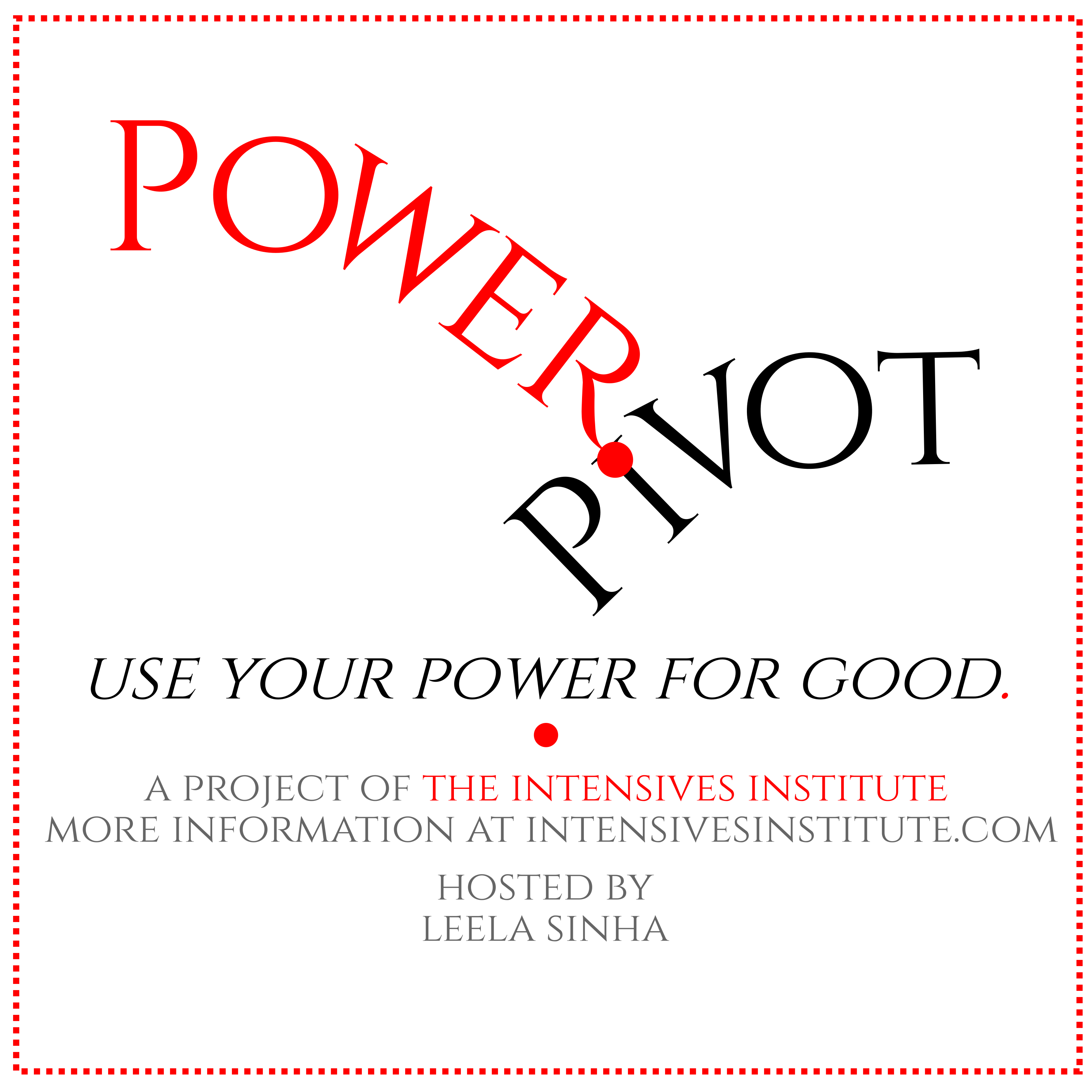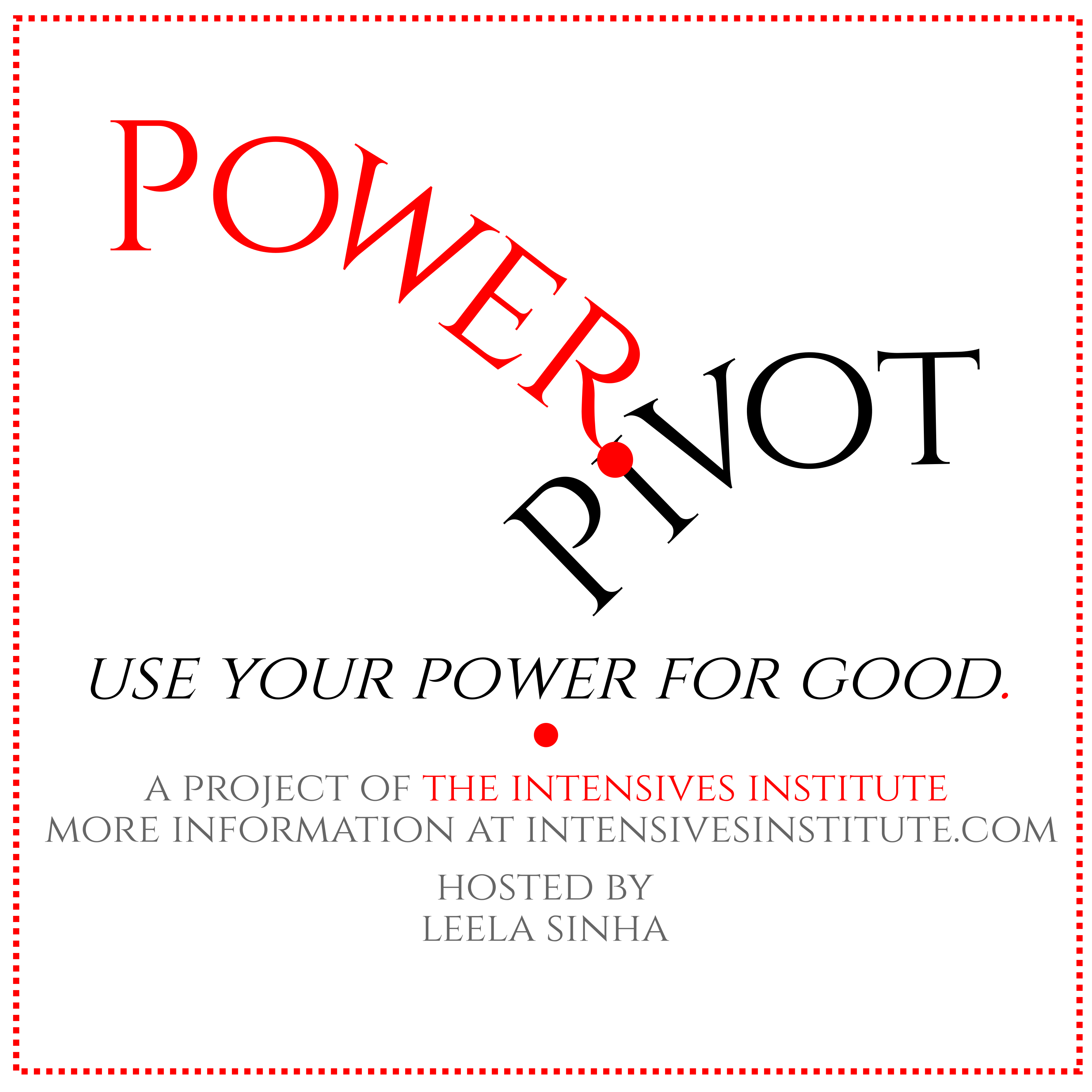Episode 35
when way opens to rest
"When we are desperate to rest, and we don't rest, it sets off every alarm bell in our system.... Rest is the space of becoming."
Wrapping up our theme of the tension between the need to do and the need to rest. Last time we talked about 'the way opens'- taking the first step, so that the next step might reveal itself. What happens when the next step reveals itself... as rest? (Hint: rest should definitely be part of the answer.)
For more on Tricia Hersey and Rest is Resistance, visit The Nap Ministry
Transcript and notes:
https://dev.intensivesinstitute.com/captivate-podcast/when-way-opens-to-rest
Recorded 29 January 2024.
Transcript
Hey, everyone, thanks for tuning in.
So this is the last episode for January. When we get to February- we might be a little bit off schedule. Sometimes the release schedules a little bit off- but when we get to February, we will be changing our focus. We will be engaging "love the one you're with." Finding the delight and the relief.
Which is about really enjoying and delighting in the skills and the strengths of the expansives in our lives, as intensives. And in general, delighting in people who are different in ways that we might not understand at first.That we might wrestle with it first, that we might be frustrated with it first.
So it will, it'll be fun, it's gonna be a fun month. Because there's so much to discover so much fun, delightful stuff about other people to discover. That's one of my strengths and failings as a human being, is that I can almost always find things to love about people. Nearly always.
But today, we're going to go back to focusing on this push-pull. One last one last round with this tension. Between this urgent feeling that we have to do something, do something do something, and the desperate urgency of rest.
So the first thing I want to say is, when we are desperate to rest, and we don't rest, it sets off every alarm bell in our system. We, especially as intensives, understand not having our needs met as a survival-level threat. If you're a parent, my heart goes out to you especially.
Because children are not intensive-friendly. Like, having children is not an intensive-friendly project. Raising children is like raising, I don't know corn or green beans, but for 18 years straight. In that there's a need for constant attendance, constant attention, constant engagement. You don't have the option, especially at the beginning, to say "I need a timeout."
Unless you're co parenting with someone else. And if you are, even then- I think one child needs three adults. I don't think fewer than three adults is enough resources. Because inevitably, two adults are tired, sick, unavailable. It's really hard. It's really hard.
And I say this as someone with no children. I know some people are exquisitely good with children, and I send my blessings. And also, I want to acknowledge how intensive-unaccommodating having children is. It just- it is, that's the reality of what it is to raise a small being, like a child. So acknowledging that setting that sort of aside, being aware of it.
The next thing I want us to look at, the last thing I want us to look at is, if we are- if we are engaging this "take one step and way will open" idea. This idea that we move forward into the project, we move forward onto the path, and then we wait. And look and listen and feel and use the information we have from that new location to figure out what the next new location is. What the next move is.
That is also true of needing to rest.
There are going to be times when way opens and way says "rest". And then what? I am going to suggest, and it's been a long time since I read "Let Your Life Speak." But I'm going to suggest that the idea at the core of this principle, is that even rest can be the next move. The next move might be not moving. And when that feels like it's at odds with the big goal, the end of the tunnel- usually we're wrong.
That's it. Usually we're wrong.
I could actually stop this episode right here. Maybe I should but I'm not going to.
We don't have to stop everything. But we do have to rest and sometimes that rest looks and feels deeper than any resting we've done in our memory. If you would like to explore the idea of rest, the importance of rest, the centrality of rest, I highly recommend Trisha Hersey's book "Rest is Resistance." I can't say enough good about that book. And if you are into audiobooks, she does read it.
We need to reformulate our ideas about the place that rest occupies in our lives, in society, in culture. Rest is not an afterthought, rest is not secondary. Rest is not secondary.
Rest is not a reward.
Rest is central. Rest is primary. And when we feel this gripping need to rest, it behooves us to attend to it as gravely, as seriously, as intently as we would attend to a need to do something. A need to walk or run or build or construct or thinker or ideate or record or whatever it is- whatever it is that you felt like you needed to do. Reorganize, categorize. So much.
And the world has only gotten more demanding. So much, because we're in contact with so many people and so many things. So much, and it's all wanting something. Some piece of our attention.
I can tell when I need a break, because a notification will pop up on my phone as I'm looking at my phone doing something. And I get irritated that the notification popped up. Well, if I didn't want the notification, I could just turn off notifications. So what that tells me is, I'm overwhelmed. Or I'm starting to be overwhelmed. I'm approaching overload. I'm too full. I've eaten too much. My stomach hurts. My body can't use any more right now.
My brain can't use any more right now. It will, but not right now. So put down the phone. Leela, put down the phone. And so I will often put down the phone and allow myself to do just one thing. Sometimes it takes a minute.
Earlier today, I recognized that I needed to get up and get out and the weather was unseasonably beautiful, which has climate implications that terrify me. But also, if it's going to be unseasonably beautiful in January, I'm gonna go walking. Because walking is good for me. Sunshine is good for me. I know these things are good for me. They nourish me.
The cadence of walking itself is good for me. And so I put my phone in my pocket and I got my shoes on. And I went out the door in my, one of my usual directions for going for a walk. And I got, I don't know, halfway through an hour walk before I stopped pulling my phone out of my pocket every 10 seconds to check something, to type, something to post something, to take a picture. And I could just be there. Be there listening to the birds, smelling the extremely early flowers.
There was something that smelled good and strong and absolutely did not belong blooming here in January, but I smelled it. And I was just with it for a moment. And then I walked back through there later. And I smelled it again. And I stopped to look but I couldn't find it. Somewhere on that corner, there is a plant that is blooming that is wafting its scent into the air. In hopes of something probably, pollination.
I was able to just be on my walk. But it took me half the time that I was outdoors to get to the point where I could just be on my walk. And for me that is a kind of resting. That cadence lulls my body and my brain into some other state. That openness around me, that getting my chin up off my chest, brings me to another place. Another way of thinking, another level of imagining.
And what we need so badly right now, as a world, is imagining.
So sometimes we gotta take that rest. And it takes a minute. It takes a long minute. It takes half the time that we have to give that thing, before we get hungry or tired or have to go home to use the toilet or whatever it is. Sometimes half that time is still in the phone. It's extracting. It's extracting myself.
And then the other half is the birds and the fascinating tree branches and the bark. And the smell. The scent. Stopping under a stand of cedar trees to thank our relatives, the cedars, for the scent and the branches in the shade and the carpet of little tiny pieces of cedar tree, that she has left us to walk on. To soften our steps. To be in that place wholly, takes time.
Transition takes time. Rest takes time to transition into. Especially when we are not practiced at becoming restful. Especially when, like me, sometimes we have to keep our brains running in order to keep ahead of the terrors that they also hold. Sometimes, it takes this, this moment, this liminality, this space on the border.
I talk fairly frequently about being all of the mixed things that I am. All the border land things that I am. In that I actually set up housekeeping on the border. It's it's a place with dimension, it's not a line, it's got width. And I've kept my dwelling here on the border. And I invite people into the border space because this is a place where so much more is comprehensible. Where so much more is within reach. Where so much more can be understood and imagined because it is between places.
This is home to me, this border space. And this is also the space of rest. It is the space between doing this and doing that, is rest. It is absolutely critical to the existence of the other spaces. The space between.
Allowing yourself into the space between, understanding the space between; between your hands, between the palms of your hands and between the backs of your hands and the universe. All of that space is space to imagine in.
And all of that space is space to rest in. All of that space is space for stopping, for breathing, for becoming, for evolving, for metamorphosing. For going through that chrysalis phase that goo that still remembers into something different that has different tools, different skills, different possibilities.
Rest is the space of becoming.
So when the way- when your place opens up the next place, the next place is a place of resting. That is as important a yes as any project. As any other invitation. It is a sacred invitation. And it is the next thing.
Thanks for tuning in. Talk with you soon.


